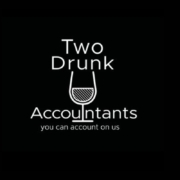Investing in overseas shares sounds so easy. But if you don’t watch out, you could pay a lot more tax.
Investing in Overseas Shares
Investing in overseas shares takes you into the realm of international tax law. In this episode Clint Harding of Arnold Bloch Leibler will tell you what to look out for.
Here is what we learned but please listen in as Clint explains all this much better than we ever could.
To listen while you drive, walk or work, just access the episode through a free podcast app on your mobile phone.
Investing in Overseas Shares
Let’s say you invest $1m into Tesla shares, and they pay you USD100,000 in dividends. How much of this will actually land in your back pocket? If you structure this the wrong way, you will see very little of it.
Three Levels Of Tax
Investing in overseas shares, there are three or four levels of tax, depending on how you structure it.
Foreign Corporate Tax
It starts with foreign corporate tax. The company overseas will pay corporate tax and state and county taxes. That tax is lost to you. Very few countries have a franking regime as Australia and New Zealand do, so those overseas income taxes are a sunk cost to you.
In the US, the corporate tax rate is 21%. Tesla would have paid USD 26k of corporate income tax on an income of USD 126k to distribute a dividend of USD 100k to you.
Foreign Income Tax
Next comes foreign income tax. It would be completely impractical for all small foreign investors holding a small slice of publicly listed companies to lodge a tax return in that jurisdiction. So you don’t, and instead, the company collects withholding tax on your behalf to satisfy your tax obligation overseas.
In the US, the withholding tax is 15%. Not every country claims withholding tax. For example, the UK and Hong Kong don’t, but the US does.
So, of the USD 100,000 Tesla dividend, only USD 85,000 will arrive in Australia. What happens now will depend on who owns the shares.
Individual Shareholders of the Tesla Shares
Let’s say you hold the Tesla shares in your individual name. So USD 85k hits your bank account. You include the equivalent of USD 100k in your ITR as assessable income and receive a Foreign Income Tax Offset (‘FITO’) of USD 15k.
If you are at the top marginal tax rate of 45% plus 2% Medicare, your tax liability for this gross income of USD 100k is USD 47k. You use the FITO of USD 15k, so the top-up tax is USD 32k. That leaves USD 53k in your pocket.
So, with a gross profit of USD 126k, you get to keep USD 53k. It’s not a great outcome, but it gets worse.
Australian Corporate Tax
Suppose you bought the shares through your small (base rate entity) company. That was a bad move, as you will see later. But right now, all looks fine.
So, your company receives USD 85k in their bank account. Your company receives a foreign income tax offset for the withholding tax it paid overseas. Assessable income is USD 100k. The tax debt is USD 25k, less FITO USD 15k, resulting in a top-up tax of USD 10k. As a result, you have USD 75k cash left in the company’s bank account.
Now, you distribute the USD 75k to yourself, and this is where things turn south.
Australian Individual Tax
You receive USD 75k plus franking credits of USD 10k, so USD 85k assessable income.
You don’t receive any franking credits for paid withholding tax since the withholding tax was paid by the company (not you) and was paid in the US (not Australia); hence, there are no franking credits. This is called withholding tax leakage.
Assuming you are at the top marginal tax rate, the Australian income tax on your USD 85k dividend is USD 40k. You only have USD 10k of franking credits and hence pay an additional USD 30k, leaving you with USD 45k.
All up, you paid USD 81k of tax on the USD 126k of profit that was allocated to you, and you walk home with USD 45k in your pocket. Not a great outcome, when you think back to the original USD 126k.
Trust
If you hold the shares through a discretionary trust, the mechanism is the same as for an individual shareholder. The dividends must first pass through the trust tax return. And are then distributed to you, including a FITO for withholding tax. The result is the same.
You don’t have to lodge a tax return overseas if you hold a small percentage of listed companies. Tax collectors overseas would go crazy if you did.
Australian Equivalent
If Tesla were an Australian company, how much tax would you have paid on the USD 126k profit as an individual direct shareholder? You would have received a franking credit of USD 38k (30% tax rate on USD 126k) and would have paid a top-up tax of USD 21k (assuming marginal tax rates). You would have been left with USD 53k. A much better outcome.
Withholding Tax
The withholding tax liability is actually a tax liability on the investor. It is the investor who pays the withholding tax. The company just withholds the tax on behalf of the investor.
This is very important for foreign income tax offsets (‘FITO’) because one of the key requirements in claiming any sort of FITO is that the entity claiming the FITO is also the entity who paid the withholding tax.
Withholding tax is just a collection mechanism because obviously once the money leaves the country, it is very difficult for tax authorities to collect any tax that is owed.
Withholding tax on dividends is a final tax. Once you paid it, there is nothing else to do in that country. There is no need to lodge a tax return in the foreign jurisdiction.
Withholding Rates
How much is actually withheld depends on the double tax treaty between the country and Australia. And it also depends on the size of your investment.
If you take the US as an example. The withholding tax for a small interest is 15%. But if you hold more than 10% of the voting rights in a US company, the dividend withholding tax rate drops to 5%. And if you hold at least 80%, then the rate drops to 0%. The withholding rate is also 0% if the Australian shareholder itself is a listed company or controlled by a listed company.
Summary
So, there might be other reasons why you would want to buy overseas shares through a company. But if you focus on dividends, then you will be disappointed. You pay significantly more tax.
So, just for tax, invest in your name or through a discretionary trust, but not a company.
MORE
Property Development within an SMSF
Disclaimer: Tax Talks does not provide financial or tax advice. All information on Tax Talks is of a general nature only and might no longer be up to date or correct. You should seek professional accredited tax and financial advice when considering whether the information is suitable to your or your client’s circumstances.
Last Updated on 20 February 2025
Tax Talks spoke to Clint Harding - Tax Partner at Arnold Bloch Leibler - for more details.







